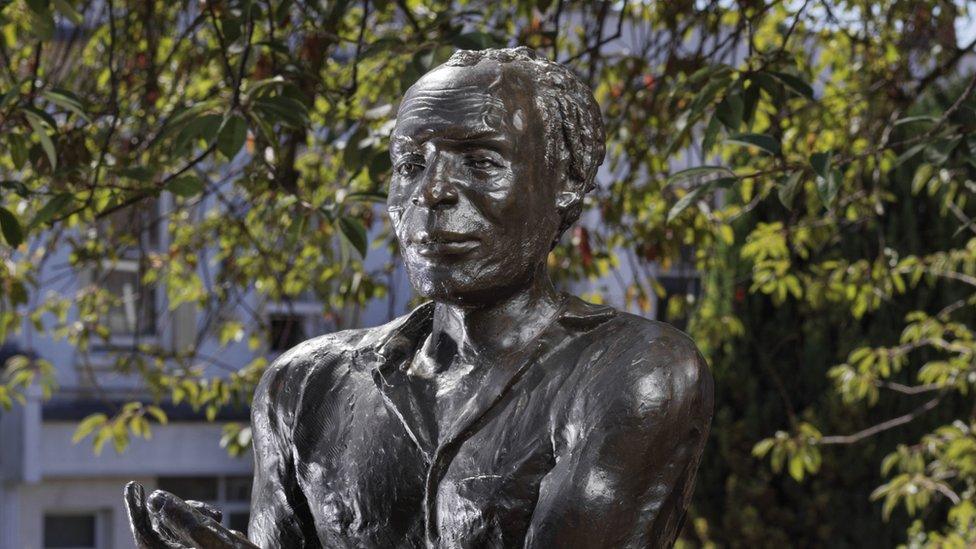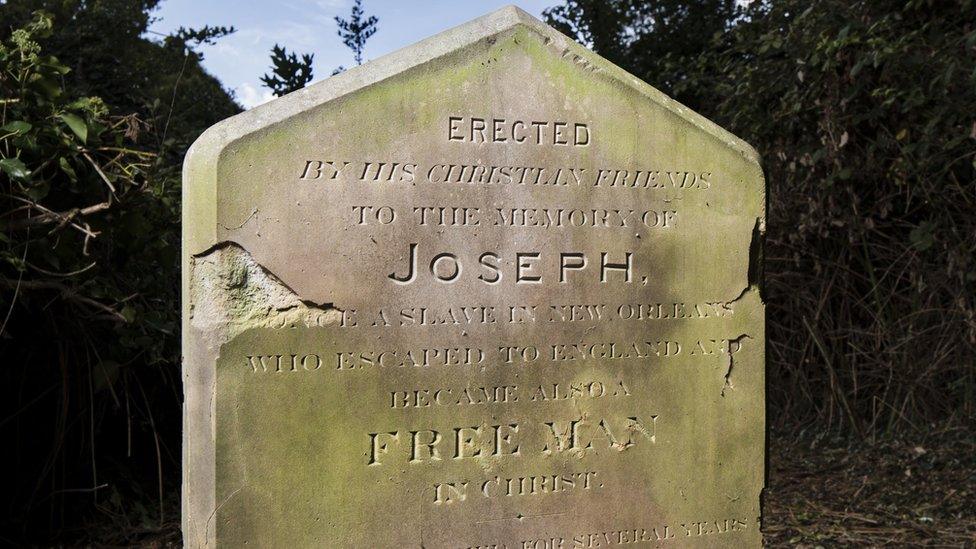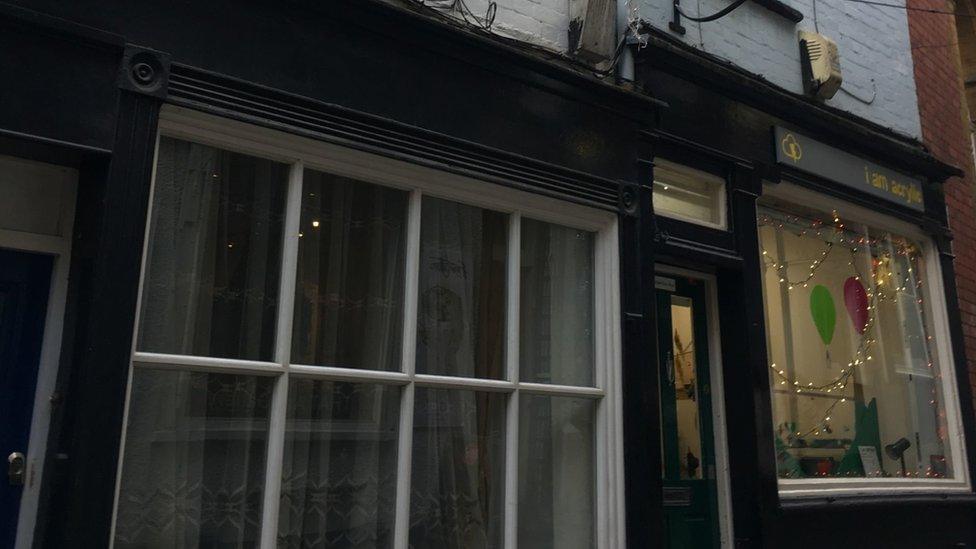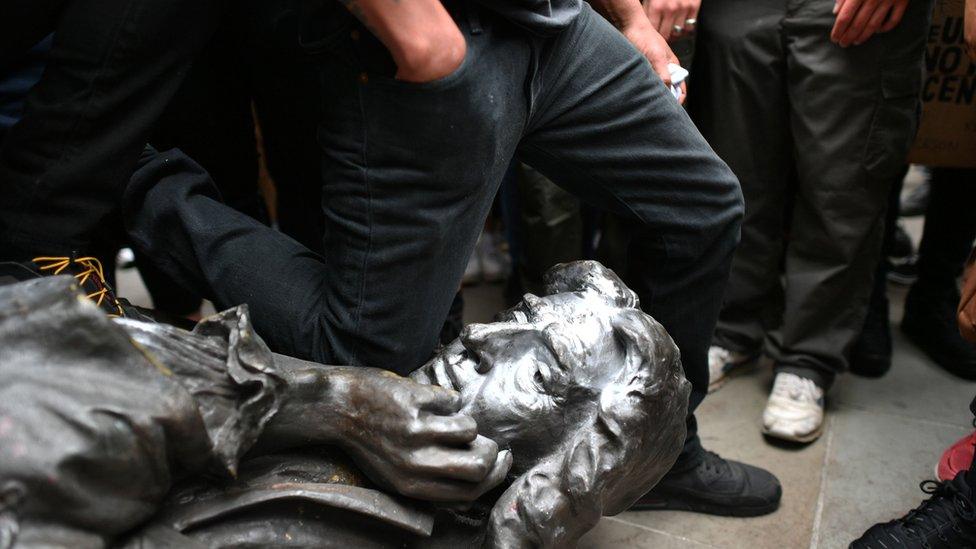Black History Month: Statue of playwright gets listed status
- Published

The statue of Alfred Fagon in St Pauls now has listed status
A statue of the first black playwright to have his work broadcast on British television has been given listed status.
The bust of Alfred Fagon in St Pauls, Bristol, is now a Grade II-listed monument.
The Chelmsford gravestone of an African American who liberated himself from enslavement has also been listed.
The Department of Culture, Media and Sport (DCMS) made the announcement on Wednesday during Black History Month.
Amendments to the National Heritage List are made by the DCMS on the advice of Historic England.
Historic England chief executive, Duncan Wilson, said: "Black History Month offers a great opportunity to bring attention to black stories and celebrate the important contributions of black people to our nation's story.
"The stories highlighted by these new listings and amendments are fascinating and important additions to The National Heritage List for England."

The second listing is of a gravestone in Chelmsford belonging to Joseph Freeman
Fagon moved to Britain from Jamaica in 1955 aged 18-years-old, and would become one of the most notable writers of the 1970s and 1980s.
One of his first works, No Soldiers in St Pauls, examined the tensions between the police and the black community in 1970s Bristol. He died in 1986.
His bust, sculpted by Zimbabwean artist David Matusa, was erected in 1987.
The listed status intends to "celebrate this bust's special architectural and historic interest" and give it a form of protection for future generations.
The second listing is of a gravestone in Chelmsford belonging to Joseph Freeman, a formerly enslaved man from New Orleans who liberated himself from enslavement and later died in the English city in 1875.
Historic England has said the memorial is of "considerable importance" as it provides evidence of formerly enslaved African American people in England and serves as a reminder of the human impact of the Transatlantic Slave Trade.

Number six and seven Christmas Steps in Bristol, are now rare due to bombing in the Second World War
Amendments to three existing listings have also been made to highlight their historical significance within black British history. They are:
A Grade II Baptist Church in North Shields which held talks by abolitionist Frederick Douglass during his tour of the UK in 1846 as he spoke out on the system of slavery.
Numbers six and seven Christmas Steps, in Bristol, which are a pair of Grade II listed attached houses with former shops at ground level. Their listing now acknowledges that in the 1870s number seven was the home of tightrope walker Carlos Trower, who liberated himself from slavery in America, and went on to become one of the most prolific circus acts of his era.
The grave memorial to Susannah and William Darby in Leeds. William Darby, more widely known by his stage name of Pablo Fanque, was one of the most successful circus impresarios in Victorian England and the first black circus owner in Britain.
Heritage minister Lord Kamall said: "Black History Month is an important time to celebrate and reflect on the diversity of our heritage.
"These new listings will preserve important pieces of our history and make sure the stories behind the landmarks are told to new generations."
Correction 14th October: An earlier version of this article reported that at the time of his death in 1986, it is thought that Alfred Fagon was still the only black British playwright to have had their work broadcast on national television. In fact this was demonstrably not the case and so we have removed this line from the story.

Follow BBC West on Facebook, external, Twitter, external and Instagram, external. Send your story ideas to: bristol@bbc.co.uk , external
- Published16 January 2022
